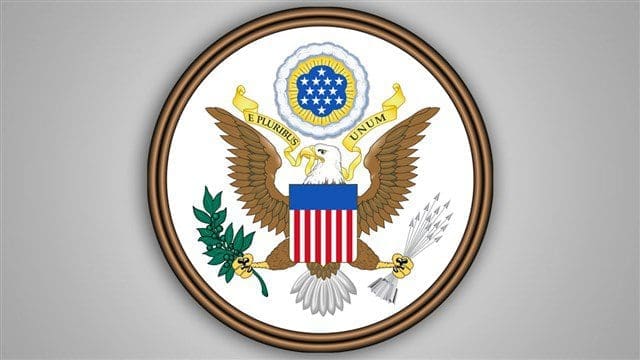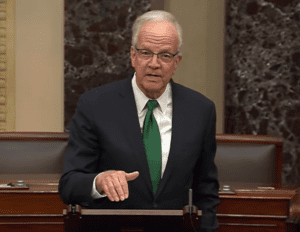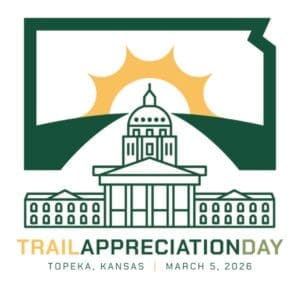By Derek Schmidt, Kansas Attorney General
Kansas- Americans recently celebrated our Independence, pausing to mark the nation’s 246th birthday and honoring those who have served our nation in war and peace to defend our freedoms. July is also Military Consumer Protection Month, a time when we remind military families and veterans to be watchful for the hazards posed by scammers and fraudsters who unscrupulously prey on those who have given much to their country.
The Kansas Attorney General’s Office supports our military men and women and their families through consumer protection efforts. The Kansas Consumer Protection Act provides extra protection for members of the armed forces on active duty, in the National Guard or armed forces reserves, an immediate family member of a military member, a veteran, or the surviving spouse of a veteran. Resources are available to help navigate a variety of financial and other personal issues, including considerations before establishing a power of attorney and protecting your identification while you are deployed. A link to those resources can be found at www.inyourcornerkansas.org/military.
The State of Kansas provides many benefits for military servicemembers, spouses, and veterans.
Kansas Military Personnel: Kansas residents on active military duty may qualify for exemption from property taxation in Kansas on up to two personal vehicles they legally own, provided Kansas is their permanent home of record. Non-Kansas military personnel have the option of registering in the Kansas county in which they reside or in their home state of record. If the military servicemember registers in the state of Kansas, they may be eligible for exemption from property taxation. Note that this exemption applies to property taxes only, not sales tax. Check with your county treasurer for documentation requirements, or visit the Kansas Department of Revenue website for more information.
Military members and veterans may be eligible for federal protections, which help ensure our veterans and military families are treated fairly and receive the benefits they have rightfully deserved. Some of those protections and services include:
Veteran benefits: The veterans’ benefits application process is a free service. There is never a fee to apply, and many organizations have Veterans Service Officers who will assist with the application process at no cost to the veteran. Go to www.ebenefits.va.gov/ebenefits/vso-search to find one in your area. Do not pay or give any personal information to anyone who contacts you and says they may be able to help you claim additional government benefits by overhauling your investment holdings. In addition, veterans should never be charged to access their military records or government forms. Veterans can also get credible information on how to qualify for benefits by contacting your state veterans’ affairs agency. In Kansas, that agency is the Kansas Commission on Veterans Affairs at www.kcva.ks.gov. The National Association of State Directors of Veterans Affairs maintains a website at https://nasdva.us with a directory of state agencies and offers helpful information about applying for benefits.
If you would like to learn more about veteran benefits, contact a local Veteran Service Representative or call Kansas Commission on Veterans Affairs Office (KCVAO) at their toll free central office number (800) 513-7731. As veteran advocates, KCVAO assists veterans and their families with obtaining the benefits they have earned as a result of a veteran’s honorable military service.
Servicemembers Civil Relief Act: Servicemembers Civil Relief Act (SCRA) is a law that provides legal and financial protections when a person is called to active military duty. The rights and protections include:
- Right to the 6 percent interest rate cap. This law limits the amount of interest on certain financial obligations incurred prior to military service to no more than 6 percent per year.
- Right to protections in payment. The SCRA protects servicemembers and their spouse or children from loss of benefits due to failing to pay rent, loans, mortgages, or insurance policies.
- Right to terminate residential lease when a military member receives orders sending them to a new duty station for at least 90 days.
- Protection from certain default judgments, foreclosures, and repossessions.
- Protection from the execution of liens on servicemembers’ property (such as a storage lien, mechanic’s lien, or a lien by a towing company) without a court order while member is in the military service, and for 90 days thereafter.
- According to Kansas law, a court cannot use the deployment or possible deployment of the custodial parent as the sole factor to consider a change in child custody. Seek private legal advice for your individual family situation.
Employment: The Uniformed Services Employment and Reemployment Rights Act (USERRA) protects servicemembers’ and veterans’ civilian employment rights. Unless an exception applies, servicemembers have the right to re-employment in their prior civilian jobs. Servicemembers also have the right to be restored to the position and benefits they would have attained had they been at their civilian job instead of serving in the military. If servicemembers do not qualify for the escalated position, the employer must place them in a position for which they do qualify which is most nearly approximate to the escalator position. USERRA also protects against discrimination and retaliation based on military service, as well as provides rights to continue health insurance. The U.S. Department of Labor, Veterans Employment and Training Service (VETS) investigates and resolves complaints of USERRA violations.
Charity scams: Fraudulent veterans’ charities are sometimes used to scam unsuspecting consumers. Often, scammers use the name of a reputable charity or a name that closely resembles a reputable charity meant to confuse consumers. A fraudulent charity may be reluctant to provide information about its identity, mission, costs, and how it uses donations. A number of organizations provide information about the trustworthiness and prior track record of charitable organizations. The Kansas Charitable Organizations and Solicitations Act (KCOSA) requires most charitable organizations to register with the state prior to soliciting. The Office of the Attorney General enforces the KCOSA and works to protect consumers from fraudulent charitable and solicitation activities. Consumers can call (785) 296-3751 or visit the charities registration page at www.ag.ks.gov/charities to check whether a charity is registered.
More information on staying safe from scams is available on the attorney general’s consumer protection website at www.InYourCornerKansas.org. If you suspect a scam or fraud, you can file a complaint with our Consumer Protection Division online at the aforementioned website or by calling (800) 432-2310.













